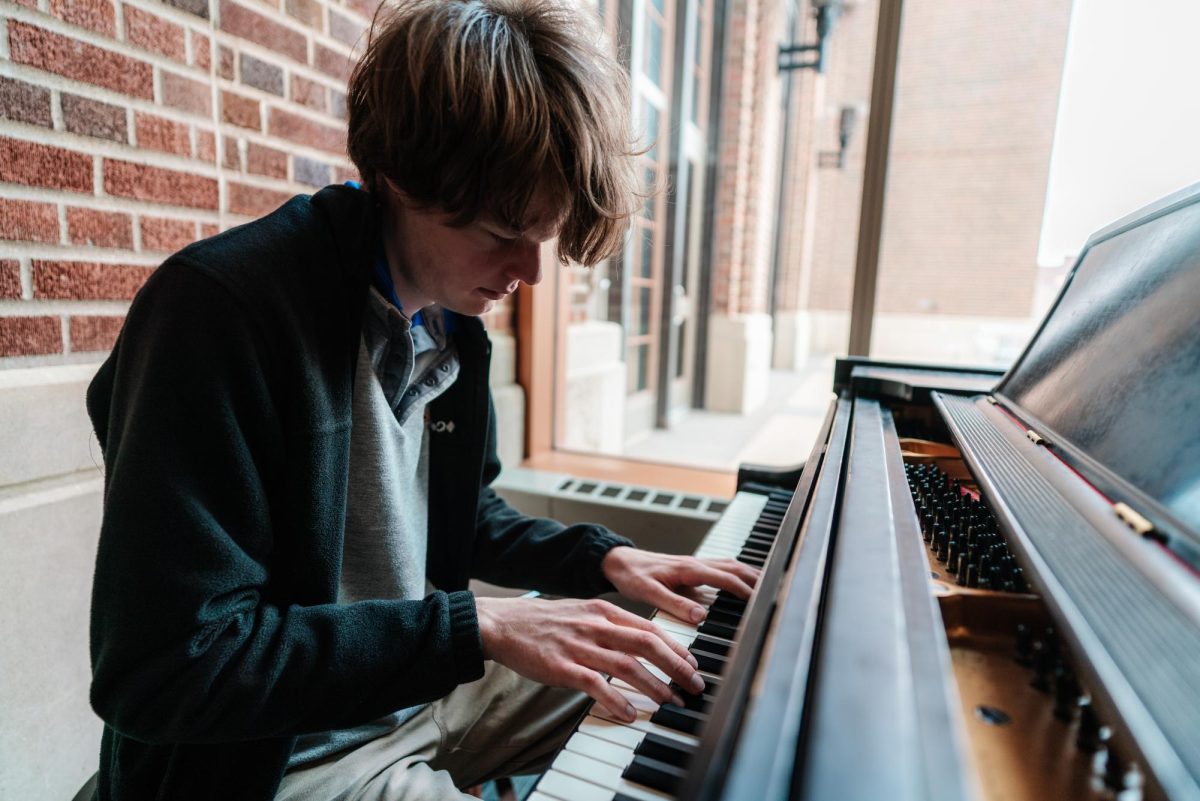In 2003, six rapes a day occurred in Minnesota, according to the state’s Department of Public Safety Bureau of Criminal Apprehension.
If a student experiences or has experienced any type of sexual assault, there are many counseling options available on campus.
All of these choices can work independently with students or can combine efforts to help students through their experience.
The Aurora Center for Advocacy and Education, located at Boynton Health Service, gives options to students who have been sexually assaulted, raped or are dealing with domestic violence.
Advocates at the center provide information on legal matters and can refer victims to counseling, said Elizabeth Borer, Aurora Center legal advocacy and direct services coordinator. They also provide services for anyone who suspects a friend may be a victim of assault or violence.
An Aurora Center advocate is always on hand if a sexual assault is reported to the University of Minnesota Medical Center, Fairview, Borer said.
The Aurora Center will not force victims to press charges or seek counseling and will support whichever decision the victim makes in dealing with their situation, Borer said.
“We really don’t want to force anyone to do anything they’re not comfortable with,” she said.
The center offers crisis intervention by advocates who have gone through extensive training and are certified by the state of Minnesota.
Borer said that if a victim needs a safe place to go after an assault, the center can refer them to a shelter.
Advocates will help victims file restraining orders, if necessary, Borer said.
The Aurora Center collaborates often with the University of Minnesota Police Department, she said.
If a victim wants to press charges, an officer will come to the center to take the victim’s report. If the victim would like, the advocate from the center will stay with them while they file the report.
Steve Johnson, deputy police chief for the University Police Department, said that on average 12 sexual assaults reported each year to the police department.
The Aurora Center, on the other hand, received reports of 79 sexual assaults between July 2004 and June 2005.
When sexual assaults are reported, the police department works very closely with victims to give them their options, he said.
Johnson said it’s very important that victims report all types of sexual violence to police.
If there is any kind of assault, there could be a threat of more, he said. If the police know about it, they can try to stop the same perpetrator from doing it again, Johnson said.
Johnson said that if victims would like to press charges, it is important for them to get a sexual assault resource services exam within 72 hours of the incident. This will give investigators the best evidence with which to press charges.
Victims can go to Fairview to get a SARS exam. These exams are recommended and are done by specially trained nurses, Borer said.
At Boynton, victims can get any type of medical care they might need, which is important if charges will be pressed later.
In addition to medical service, victims can utilize Boynton’s mental health clinic for further counseling.
Candice Price, a therapist at the clinic, said some victims want to talk right away and some don’t. Even if students don’t feel comfortable speaking with a counselor, it’s important for them to know about the available resources.
While the Aurora Center focuses more on crisis intervention, the mental health clinic centers on counseling victims.
Price said the clinic will never force a student to report an incident or press charges, but it is something they recommend.
“It’s something that we work for because we want there to be justice,” Price said.
The Aurora Center also refers victims to the University Counseling and Consulting Services, Borer said.
Kathleen Condon, a counselor at the University Counseling and Consulting Services, said counselors at this center generally see victims who have recently been assaulted or those who have a history of sexual abuse.
“We understand that it is a particularly devastating kind of trauma,” Condon said.
Counselors help support victims, give them hope and help them feel safe again, Condon said.
Victims do not receive long-term counseling through UCCS, but those in need of continuing counseling will be referred to another organization, Condon said.
While the University offers these services, many students don’t know about them.
Construction management senior Chris Wenger said that aside from hot line numbers, he wouldn’t know what to do if he was assaulted.
Physiology junior Niki Evans was also unsure.
“I know there’s a number on the back of the bathroom doors,” Evans said. “Other than that, I’ve never really had that problem so I’m not really aware (of what to do in case of an assault).”
Borer said students must remember sexual assault is not only a women’s issue.
“Men and women have to work together to end sexual violence,” Borer said.









